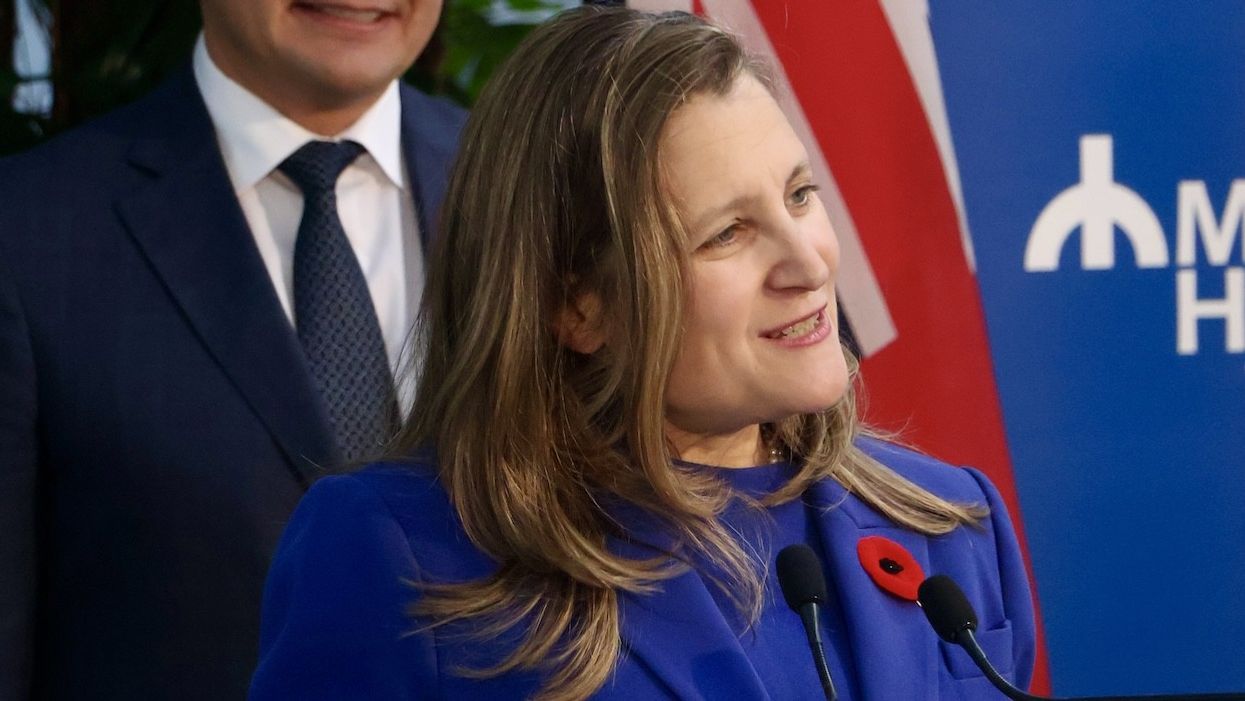The government of Canada will provide billions of dollars to fund the construction of new housing as markets all across the country continue to struggle with shortages.
As part of the fall economic statement presented on Tuesday, Minister of Finance Chrystia Freeland announced a suite of new housing-related measures specifically targetting affordable housing construction. The government committed to providing $15B towards 10-year loans for new rental builds, as well as $1B for the construction of affordable housing.
The rental funding, which will go towards the Apartment Construction Loan Program, is expected to spur the construction of 30,000 new homes across Canada, and will be reserved for rental construction projects with five or more units. The additional funding will bring the program's total contribution to over 101,000 new homes supported by 2031-32.
Meanwhile, the $1B for affordable housing will go to the Affordable Housing Fund (previously known as the National Housing CO-Investment Fund) and will focus on the construction of non-profit, co-op and public housing. Spread out over three years, the money will be provided through direct funding rather than loans.
The federal government said it also plans to announce reforms to the Affordable Housing Fund and the Apartment Construction Loan Program in early 2024 to "make the programs even more accessible, with faster approvals."
An additional $309.3M of new funding will go towards the Co-operative Housing Development Program, an initiative announced in Budget 2022 that is expected to launch in 2024 in cooperation with CMHC.
A New Mortgage Charter
As the cost of homeownership continues to burden Canadians, with those having to renew their mortgage in the next few years facing significantly higher interest rates, the federal government is proposing new mortgage rules for lenders regarding how they deal with homeowners.
The six-point plan, dubbed The Canadian Mortgage Charter, lays out new regulations for financial institutions to follow as they deal with more and more at-risk homeowners. These new requirements will mandate that lenders contact homeowners four to six months before they are set to renew their mortgage to review their options, as well as allow temporary extensions of the amortization period for mortgage holders who are at risk.
Fees and costs that would have otherwise been charged for relief measures will be waived, and at-risk homeowners must be given the ability to make lump sum payments to avoid negative amortization or to sell their principal residence without any prepayment penalties. Additionally, interest cannot be charged on interest in the event that mortgage relief measures result in a temporary period of negative amortization.
For borrowers with an insured mortgage who are looking to switch lenders when it comes time to renew, a stress test will no longer be required — a likely relief to many borrowers who would likely no longer qualify for their mortgages had they had to pass a stress test.
The War on Airbnbs Continues
In an attempt to get more rentals back on the market, the Feds are also setting their sights on discouraging the operation of short-term rentals like Airbnbs by preventing owners from making tax deductions on these properties in provinces and municipalities that have prohibited short-term rentals. This would mean owners cannot deduct property taxes, repairs, or interest costs.
Provinces like Quebec and British Columbia, and municipalities like Toronto, Montreal, and Vancouver, have already taken action against short-term rentals. The fiscal update also includes funding — $50M over three years — for municipalities to enforce their own short-term rental regulations.
"This will support municipalities with strict regulatory regimes that are having a significant and measurable impact in returning short-term rentals back to the long-term housing market," the fall economic statement reads.





















